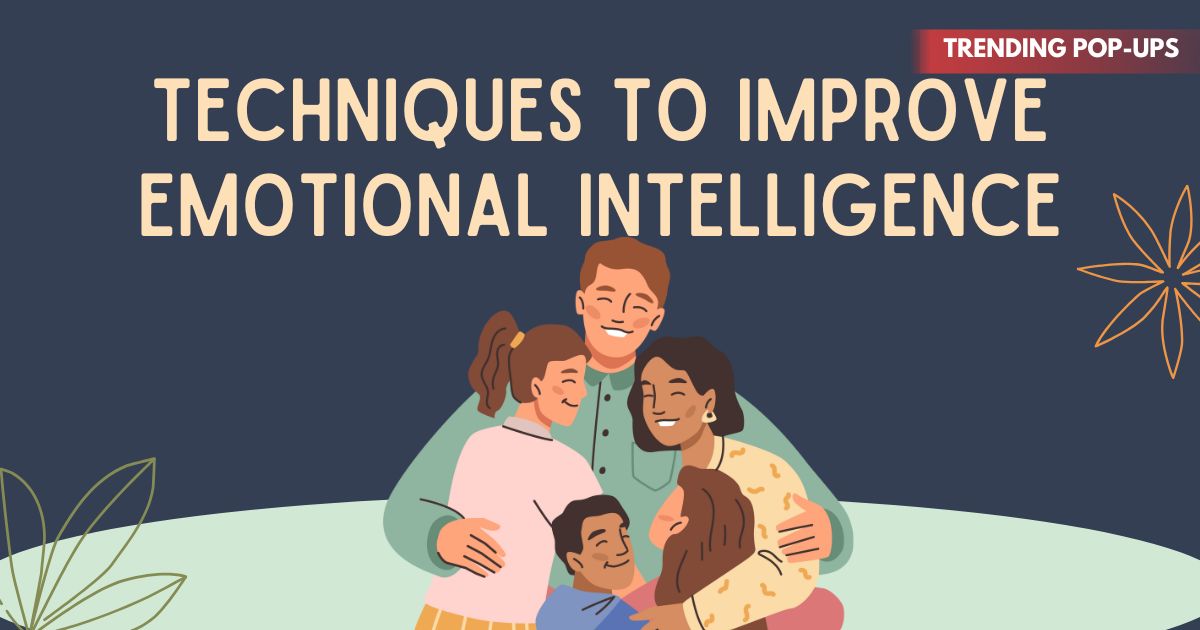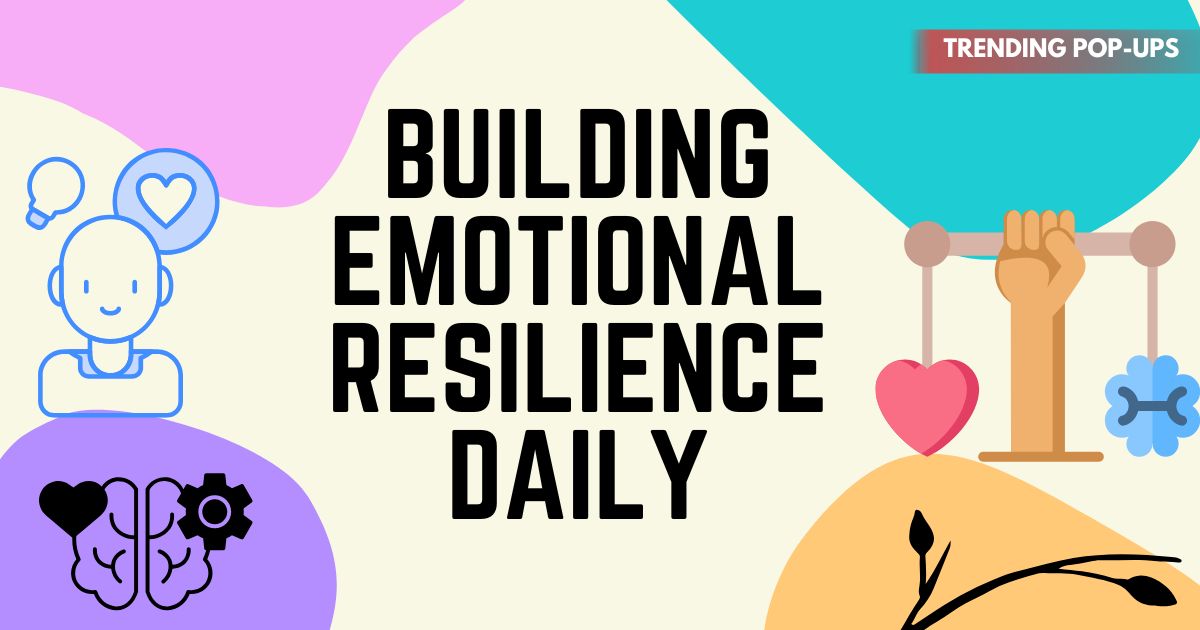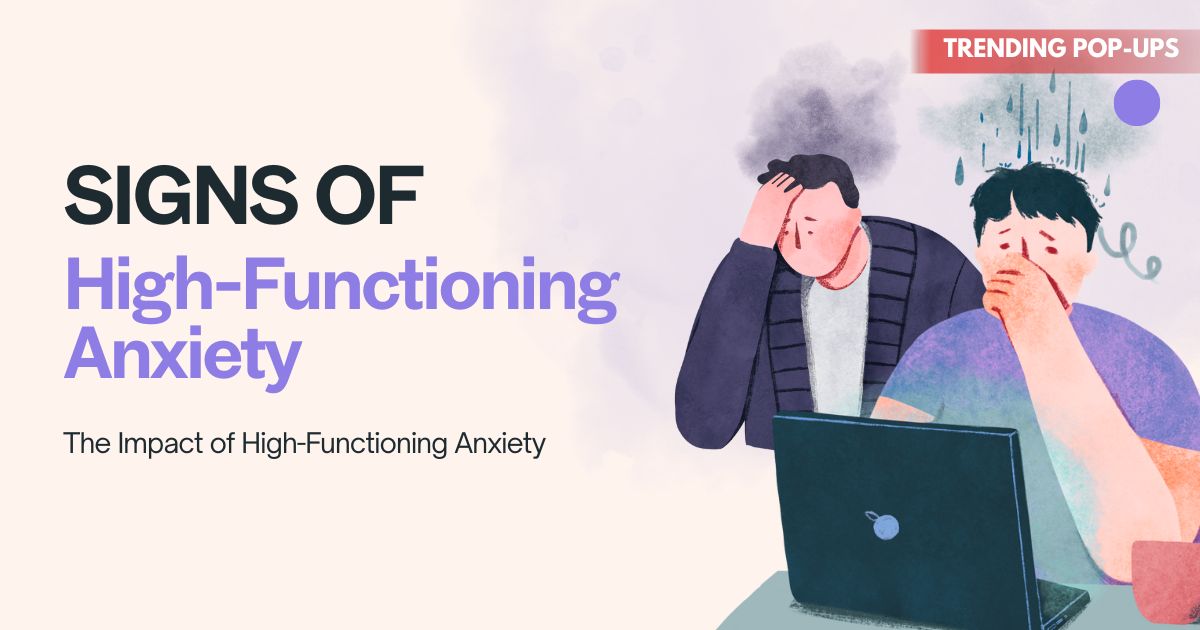Emotional intelligence (EI), often referred to as emotional quotient (EQ), is the ability to understand, manage, and use emotions in a positive way. Unlike IQ, which measures intellectual capacity, emotional intelligence focuses on self-awareness, empathy, communication, and interpersonal skills. Studies show that people with high emotional intelligence are more successful in relationships, careers, and personal well-being.
The good news is that EI is not fixed—you can develop and strengthen it over time. In this article, we’ll explore effective techniques to improve emotional intelligence, along with practical strategies you can apply to enhance your personal and professional life.
What is Emotional Intelligence?
Emotional intelligence is the ability to recognize your own emotions, understand how they affect your behavior, and manage them effectively while also recognizing and responding to the emotions of others. It involves five key components:
-
Self-awareness – Recognizing emotions and their impact.
-
Self-regulation – Controlling impulsive feelings and behaviors.
-
Motivation – Staying driven and optimistic even in difficult times.
-
Empathy – Understanding and sharing the feelings of others.
-
Social skills – Building strong, healthy relationships through effective communication.
Techniques to Improve Emotional Intelligence
1. Practice Self-Awareness
Self-awareness is the foundation of emotional intelligence. To improve it:
-
Keep a journal to reflect on your emotions and triggers.
-
Pay attention to how your mood affects decision-making.
-
Ask for feedback from trusted friends or colleagues.
By understanding your emotions, you can respond thoughtfully instead of reacting impulsively.
2. Improve Self-Regulation
Managing emotions is crucial, especially in stressful situations. Techniques include:
-
Pause before reacting: Take a deep breath before responding.
-
Practice mindfulness: Meditation and breathing exercises reduce impulsive reactions.
-
Develop healthy coping strategies: Exercise, hobbies, or relaxation techniques help manage stress.
Self-regulation allows you to stay calm, adaptable, and solution-oriented.
3. Strengthen Empathy
Empathy helps you connect with others on a deeper level. To improve:
-
Listen actively without interrupting.
-
Put yourself in the other person’s shoes.
-
Observe body language and non-verbal cues.
-
Validate others’ feelings, even if you don’t agree with them.
High empathy builds trust and fosters strong personal and professional relationships.
4. Enhance Communication Skills
Strong communication is at the heart of emotional intelligence. You can improve by:
-
Practicing active listening rather than preparing a response while others speak.
-
Being clear, respectful, and assertive in expressing your thoughts.
-
Using positive body language to reinforce verbal communication.
Effective communication prevents misunderstandings and builds stronger connections.
5. Cultivate Motivation
Motivation is more than external rewards—it is about inner drive. To build self-motivation:
-
Set meaningful, achievable goals.
-
Celebrate small achievements to stay inspired.
-
Focus on solutions instead of problems.
-
Surround yourself with positive, supportive people.
Motivated individuals remain resilient even during setbacks.
6. Develop Social Skills
Social skills allow you to navigate relationships successfully. To strengthen them:
-
Engage in team activities to practice collaboration.
-
Show appreciation and give constructive feedback.
-
Manage conflict respectfully and look for win-win solutions.
-
Practice networking to build meaningful connections.
Good social skills lead to stronger professional opportunities and healthier personal bonds.
7. Practice Mindfulness and Meditation
Mindfulness improves both self-awareness and emotional regulation. Daily meditation or even five minutes of mindful breathing can:
-
Reduce stress and anxiety.
-
Improve focus and decision-making.
-
Enhance emotional balance in challenging situations.
8. Learn to Manage Stress Effectively
Stress often clouds judgment and triggers negative emotional responses. Managing it involves:
-
Prioritizing tasks to avoid overwhelm.
-
Taking breaks during work to recharge.
-
Practicing relaxation techniques like yoga or deep breathing.
A calm mind responds with clarity instead of reactivity.
9. Seek Feedback and Reflect
Constructive feedback helps identify blind spots in your emotional responses. Accept feedback with an open mind and reflect on it to improve. Regular self-reflection allows continuous growth in EI.
10. Practice Gratitude
Expressing gratitude improves positivity and relationships. By regularly acknowledging the good in your life and appreciating others, you foster emotional resilience and stronger connections.
Benefits of Improving Emotional Intelligence
-
Stronger Relationships: Better communication and empathy foster trust.
-
Career Success: High EI professionals are effective leaders and team players.
-
Improved Mental Health: Managing emotions reduces stress, anxiety, and depression.
-
Better Decision-Making: Emotional clarity leads to rational, well-thought-out choices.
-
Enhanced Leadership: Leaders with high EI inspire and motivate others effectively.
Also Read : How to Avoid Sedentary Lifestyle Risks
FAQs
Q1. Can emotional intelligence be learned?
Yes. Emotional intelligence can be developed through consistent practice of self-awareness, empathy, and communication skills.
Q2. Why is emotional intelligence important at work?
EI improves teamwork, leadership, conflict resolution, and overall workplace productivity.
Q3. How do I know if I have low emotional intelligence?
Signs include difficulty managing stress, poor communication, lack of empathy, and frequent conflicts in relationships.
Q4. How long does it take to improve emotional intelligence?
It varies for each person. With consistent practice, noticeable improvements can be seen in a few months.
Q5. Is emotional intelligence more important than IQ?
Both are valuable, but EI often plays a bigger role in career growth, leadership, and personal relationships.



